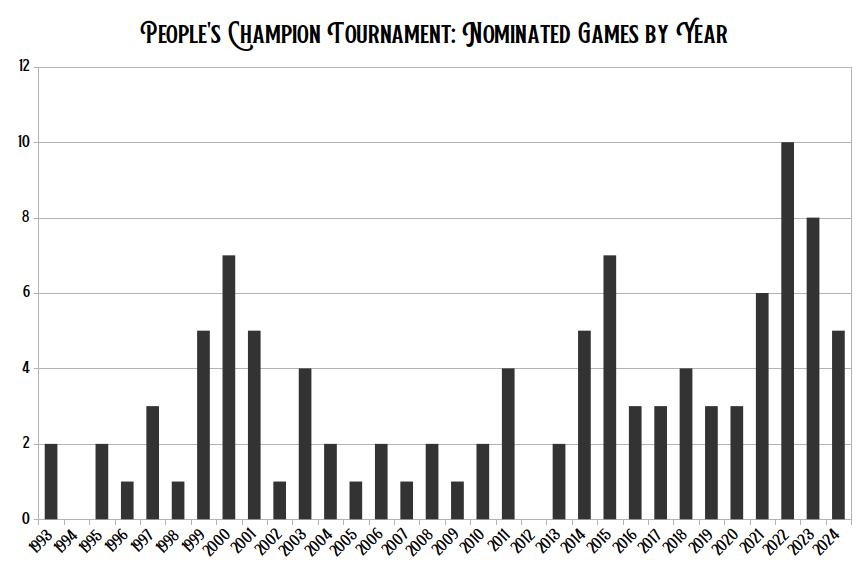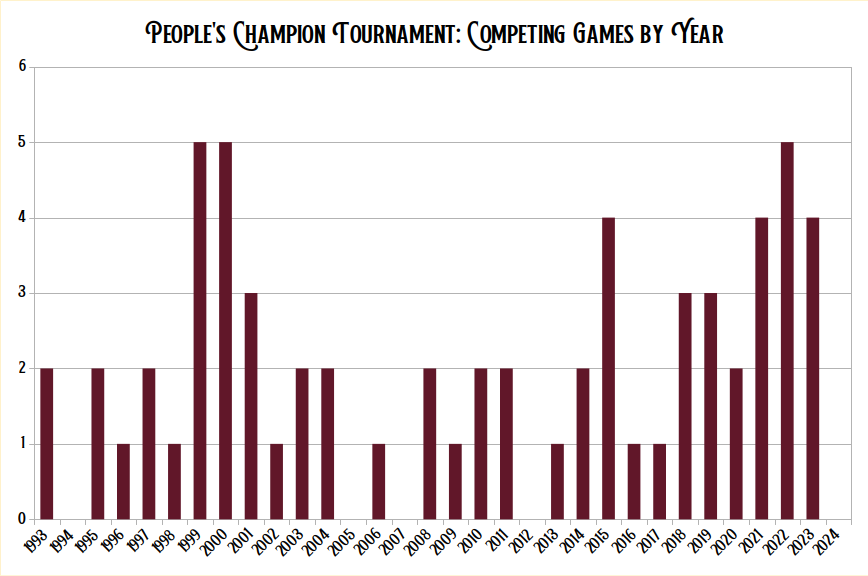Meeting more contestants! (also, happy post 100!)
Perdition’s Flames
When I first got into IF, I thought that there was Infocom, then nothing, then Curses came in and revolutionized the field.
But there were actually quite a few good indie games before Curses and after Infocom’s glory days. This is one of them.
This is by Michael Roberts, author of TADS, IFDB, and fun games like The Plant and Return to Ditch Day.
The idea is that you’re in hell after just having died. You don’t really have a set purpose at first; you just wander around the afterlife trying to find what to do.
This is a really big game, with 666 points. It’s one of the larger games in the competition, so I’d recommend starting it early. It is ‘merciful’, a rarity for the time period. Back then TALK TO wasn’t standard in games, so make sure to read instructions on how to communicate.
I most enjoyed a part where you are summoned by a medium and have to haunt a house.
The Dreamhold
Two of IF’s biggest authors wrote large tutorial games in the mid-2000’s which became very popular and have often been recommended to new players.
This is Andrew Plotkin’s tutorial game. In it, you play as someone whose mind has been fragmented and is lost in a Wizard’s ‘Dreamhold’, a special stronghold containing decades of knowledge.
There’s a lot of interesting physics puzzles (with heat, cold, rotating objects, liquid flow, etc.) combined with a dark (but not grim) story about the life of the wizard whose tower you’re in.
At the time it came out, it was a gentle introduction to the harder parser games Plotkin and others were putting out. Now, years later, I’d say it’s a bit more difficult than the average parser game, even on easy mode. So it kind of bridges the game between the difficult games of the past (like Perdition’s Flames) and simpler modern games like Wizard Sniffer. (Of course, easy games existed in the early days, and hard games exist now, so this is just a generalization).
Babel
I think at one point this game was number one on IFArchive’s most-downloaded list back in the day, probably because it had a downloadable .exe (at a time when downloads were preferred over webplay). The only thing I can see in the first IFArchive download report that has more downloads is AB10.exe, which was “Adventure Blaster”, a 10-pack of games that happened to include Babel.
It begins with you waking up with amnesia in an abandoned base in Antarctica (a surprisingly fruitful premise that I’ve seen multiple times, including in the SCP-Wiki). You have to stumble around and figure what happened. And why are all the mirrors shattered?
Written when the author was a 17 yr old living in Utah, this game was the first of many popular Ian Finley games, including the IFComp-winning Kaged and the once-commercial steampunk game The Shadow in the Cathedral (co-written with Jon Ingold). It’s the 2nd-most rated TADS game on IFDB and the 3rd-highest rated, and one of my favorite games (maybe top 20?). Has a nice mix of investigation, story/emotion, and action.
Pogoman GO!
This game is one that has been on my mind a lot over the years. I had expected it would immediately fade from relevance but perhaps has done the opposite.
You see, it’s a parody of Pokemon Go. You have to wander around collecting ‘Pogomen’ and using them to fight. There is quite a lot going on under the hood mechanically. Its authors previously won IFComp with Rover’s Day Out and the hotly-contested Jay is Games one-room competition with Hoosegow, and were one of the biggest contributors to Cragne Manor in terms of pure wordcount.
So I would have thought a game focused on the Pokemon Go craze would not resonate with future audiences.
But…
The second half of the game has you infiltrate a mega-corporation to take it down from the inside. The climax of the game is a brutal beatdown between you and the evil mastermind known as Elon Musk.
So, there is some relevance.
This is also, along with Word of the Day, one of the larger Inform games in wordcount, clocking in around 200K words, all of which is available on Github.
Dr. Dumont’s Wild P.A.R.T.I.
This was one game I hadn’t played before the competition, and it’s a treat. Written by Muffy Berlyn and Michael Berlyn (the latter of which was an Infocom game writer), it was intended for commercial release with two different companies (first, Infocom, and second, Cascade Mountain Publishing, which published Once and Future).
In it, you enter a surreal world that operates as a metaphor for finding a particle in a particle accelerator. There is a central hub with 8 different branches, each with their own puzzles. You have to find five keys and bring them back to an important area.
The game has extensive in-game hints. I did find a couple of bugs and some of the puzzles can get you locked out of victory permanently, but it’s not so super long that you can’t play from the beginning easily. I recommend reading the manual and the copy-protection sheet it comes with.
The two SPAG reviews on it are really interesting reading as a time-capsule of when it came out. (both are at the same link)
Aisle
Aisle is one of the most famous IF games, due to several factors, not least that its author, Sam Barlow, went on to make many acclaimed games, including Her Story, Telling Lies, and multiple Silent Hill games.
Its also very short, ending after a single move. Its probably the most iconic one-move game, with many others being intentional copies of it. What makes it work is that it’s actually a kind of maze in disguise. Each choice that you make brings up new memories which lets you think of new actions to do. It also allows a lot of transgressive options, which Chandler Groover has noted as something that is often popular in interactive fiction (like things like Grunk eating his pants in Lost Pig or grosser things like eating the pile of poop in Eat Me).
The story of this game is that you’re in a pasta aisle at a supermarket. Your memories, though, range through many scenarios, several of them conflicting.
Things That Happened in Houghtonbridge
This is one of my favorite Adventuron games, and is the second-most popular game originally written in Adventuron. It also won Oustanding Mystery and Outstanding Adventuron game in the inaugural IFDB awards.
Its a mystery game in the first half, trying to figure out the disappearance of your aunt. Its a pretty dark mystery as well, with missing students and murder and people acting unnaturally. The second half takes a bend into a different kind of genre altogether.
If you haven’t played Adventuron games, this is a great introduction to the genre, and if you have played them, this is a great one.
Galatea
I said before that Aisle is one of the most famous IF games. This one might top it out; on IFDB, it’s one place higher than Aisle on the ‘most-rated list’ and remains one of Emily Short’s most iconic games. It’s been covered by a dozen or more interviews, has had news articles written on it, has a Wikipedia article, was included in literary collections, etc. and remains as one of the most complex NPCs written for any video game.
It’s based on the famous Galatea from mythology, a sculpture accidentally brought to life by its creator Pygmalion. You meet Galatea at an art exhibit, where she stands on a pedestal and talks to you, an art critic.
The game is primarily conversation based, although some actions (such as touching) have significant effects. Conversation is mostly ASK and TELL.
What makes the game complex is that it tracks several things, such as Galatea’s physical position, her emotions, and things you have said in the past. I’m pretty sure Emily Short was using her concept that the responses weren’t based on what you said but on the transition between the previous topic and the current one (I may be wrong though). It has 70 different endings.
Even in the last year this game has come up in discussions about NPCs. This reddit post brought it up when people were saying that making a database of responses and coding logic for it was a really hard problem.
There’s very few games that I think all IF fans should try, but if there is any ‘canon’ in IF I think this is pretty much it, whether you’re a player, author, theorist, or lurker.

